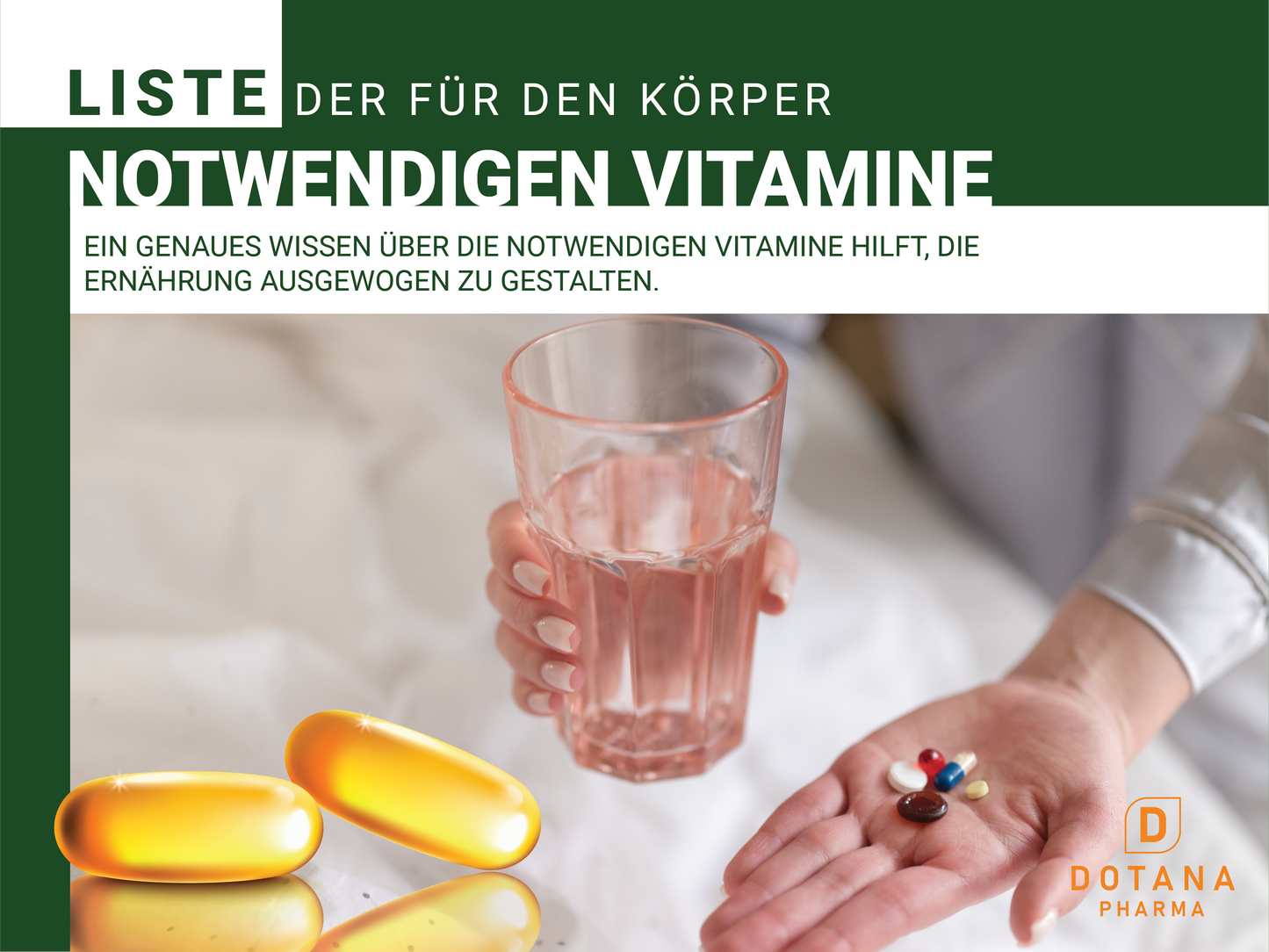
Vitamins and minerals are one of the five main groups of nutrients that the body needs. Understanding the properties of the vitamins the body needs helps ensure a balanced diet for good health.
1. Definition of the vitamins necessary for the body
Vitamins are a group of nutrients that the body needs in very small amounts, but they play an important role. Most foods we consume contain one or more vitamins, but the body often has difficulty absorbing them. Therefore, a deficiency in this nutrient group is easy to suffer and can severely impair the immune system.
The absorption of vitamins by the body doesn't follow a fixed pattern, as the properties of each vitamin vary. Some vitamins are water-soluble, others fat-soluble, which makes absorption difficult and can lead to vitamin deficiency, even when consuming foods containing these vitamins. Understanding the properties of each vitamin helps us achieve a balanced diet.
2. Common vitamins and the foods that provide them
Below are 13 common vitamins and the foods that contain them:
● Vitamin A : Dark-colored fruits, dark green leafy vegetables, egg yolks, milk and dairy products, animal liver...
● Vitamin C : cabbage, broccoli, cauliflower, citrus fruits, potatoes, spinach, strawberries, tomatoes...
● Vitamin D : Fatty fish (salmon, mackerel, herring...), fish liver, milk, cheese, yogurt, butter, cream...
● Vitamin E : Avocado; dark green vegetables (spinach, broccoli, asparagus, beets); vegetable oils (safflower oil, corn oil, sunflower oil); papaya; mango; nuts; wheat...
● Vitamin K : Cabbage; cauliflower; cereals; dark green leafy vegetables (spinach, kale, bok choy, beets, broccoli, asparagus); animal liver, meat, fish, eggs...
● Vitamin B1 (thiamine) : Milk, eggs, flour, lean meat, bread, legumes, whole grains...
● Vitamin B2 (riboflavin) : yogurt, meat, eggs, cheese, green leafy vegetables, whole grains...
● Vitamin B3 (Niacin) : Avocado, eggs, wheat, cereals, tuna, poultry, legumes, nuts, potatoes...
● Vitamin B5 (pantothenic acid) : Avocado, various cruciferous vegetables, eggs, legumes, milk, mushrooms, offal, poultry, sweet potatoes, whole grains...
● Vitamin B6 (pyridoxine) : avocado, bananas, beans, poultry, nuts, whole grains...
● Vitamin B7 (Biotin) : Chocolate, cereals, egg yolks, legumes, milk, nuts, offal, pork...
● Vitamin B12 (cobalamin) : meat, eggs, milk, soy milk, offal, poultry, shellfish...
● Vitamin B9 (folic acid) : Asparagus, broccoli, beets, brewer's yeast, legumes, whole grains, dark green vegetables, orange juice, peanut butter, wheat...

3. Effect of vitamins on the body and daily dosage
Each vitamin plays a different role when absorbed by the body. Therefore, dosage must be carefully observed to ensure a balanced diet and avoid deficiencies. The effects of each vitamin include:
● Vitamin A : Consists of retinoids and beta-carotene. 2300 to 3000 IU are required daily, depending on gender. It is important for bone formation and development and helps reduce the risk of cancer and strengthen cellular defenses.
● Vitamin B1 : 1.1 to 1.2 mg required per day. Helps convert food into energy and promotes skin, hair, and brain health.
● Vitamin B2 : Good for skin, hair, and blood and promotes the conversion of food into energy. The body needs 1.1–1.3 mg per day.
● Vitamin B5 : Not only does it help convert food into energy, but it also helps in the formation of fat and neurotransmitters, so 5 mg should be taken daily.
● Vitamin B6 : The required amount varies depending on age. Adequate vitamin B6 intake reduces the risk of heart disease, improves sleep quality and appetite, and has positive effects on the immune system and cognitive performance.
● Vitamin B12 : Approximately 2.4 mg should be consumed daily to reduce the risk of cardiovascular disease. It also helps break down fat structures and amino acids and supports cell formation and regeneration.
● Vitamin B7 : 30 micrograms daily are needed to break down the structure of some fatty acids and improve bone quality.
● Vitamin C : The recommended daily intake is 70 mg for women and 90 mg for men. A deficiency increases the risk of cancer and cataracts, while vitamin C supplementation strengthens collagen production and the body's immune system.
● Vitamin D : Essential for bone development and the body's immune system. Adequate vitamin D intake helps prevent calcium loss and bone loss and pain in old age.
● Vitamin E : Acts as an antioxidant that fights free radicals and enhances the effects of vitamin A. It also reduces the risk of memory loss and Alzheimer's disease.
● Vitamin B9 : The recommended intake is 1000 micrograms daily. It is important for the development of the neural tube and brain in fetuses and reduces the risk of heart disease and cancer, especially in women.
● Vitamin K : Helps with protein synthesis and calcium storage, aids blood clotting and strengthens bones.
● Vitamin B3 : Good for the skin and nervous system and, at high doses, can lower bad cholesterol levels.
4. Some tips on vitamin intake
Vitamins and minerals don't need to be consumed in large quantities. Therefore, you shouldn't exceed the recommended doses to avoid adverse effects.
Vitamins can be obtained through food or supplements, but nutritionists recommend obtaining vitamins naturally unless the body has a significant deficiency.
Caution is advised with the fat-soluble vitamins A, K, D and E, as excess is stored in body fat and can be harmful to health.
Children need sufficient zinc daily to ensure healthy growth and optimal development. Zinc is involved in almost all biological processes in the body, especially in the synthesis of nucleic acids and proteins. A zinc deficiency can lead to neurological disorders and irritability.
In addition to zinc, parents should also provide their children with important vitamins and minerals such as lysine, chromium and the B vitamins to strengthen the immune system and reduce susceptibility to disease.
